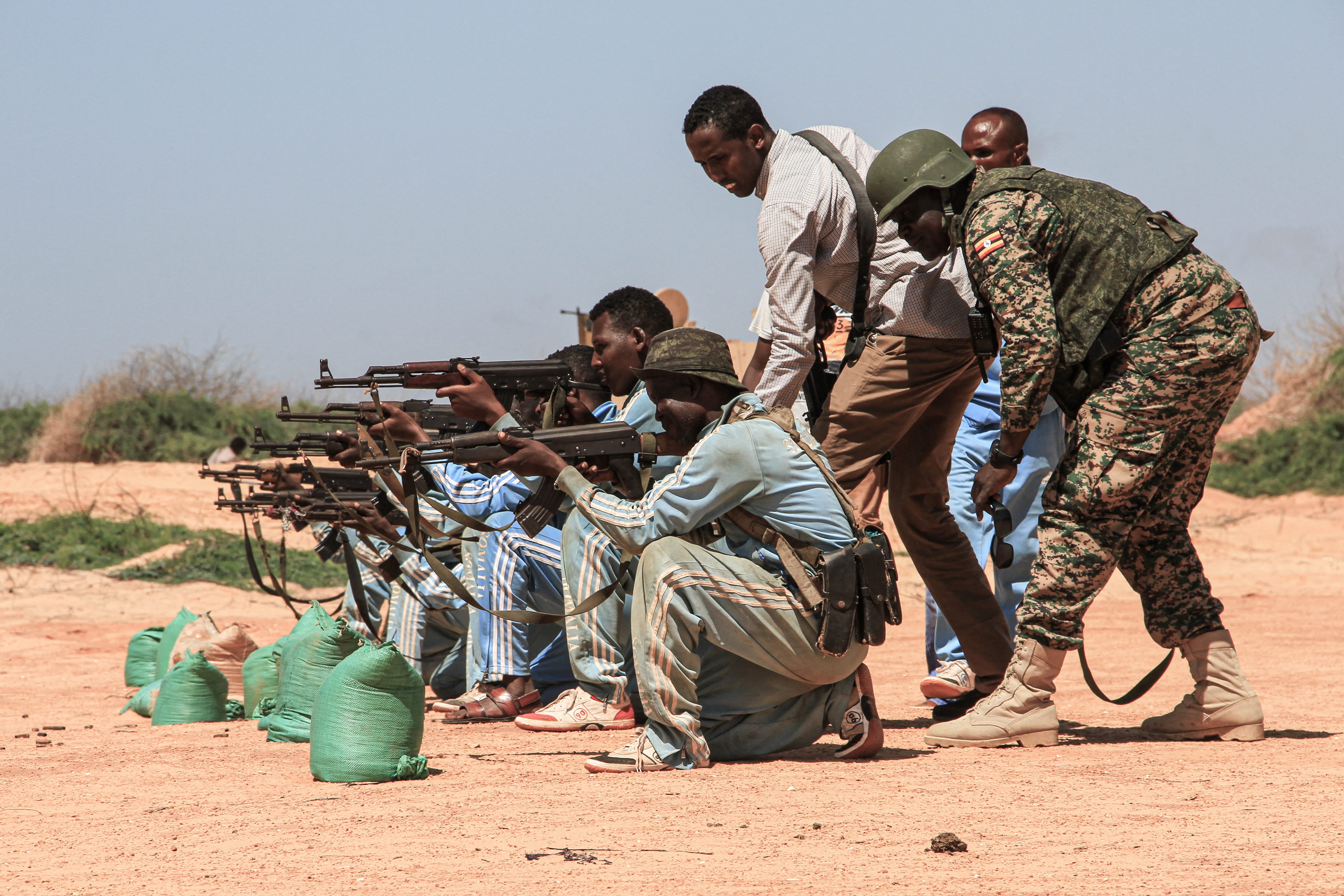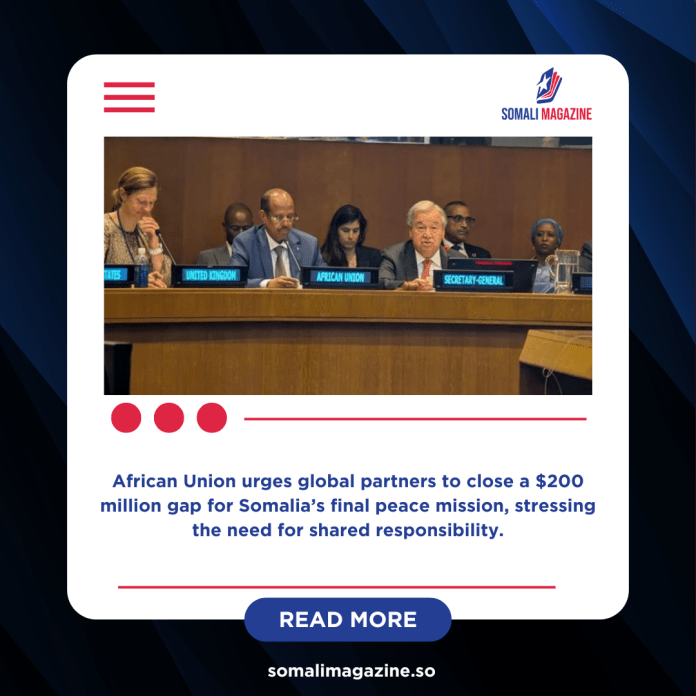Facebook Twitter (X) Instagram Somali Magazine - People's Magazine
The African Union’s top official has raised concern that Somalia’s fragile progress could be undone unless international partners step in to cover a nearly $200 million funding gap for its newest peace mission.
At a high-level pledging conference held on the sidelines of the 80th United Nations General Assembly, African Union Commission Chairperson Mahmoud Ali Youssouf praised Somalia for major achievements in recent years, including debt relief and securing a seat on the UN Security Council. But he warned that al-Shabaab remains a powerful threat, and without financial support, Somalia risks sliding backwards.
“Somalia cannot shoulder this burden alone,” Youssouf said. “Without urgent, predictable, and sustainable financing, hard-won achievements risk being undone.”
The African Union Support and Stabilization Mission in Somalia (AUSSOM), which was launched in January to replace the previous mission ATMIS, will need $196 million to operate in 2025. Youssouf emphasized that the AU has already doubled its contribution to the Peace Fund, raising it to $20 million, but said more is needed from global partners. He called on the United Nations, the European Union, and other donors to match Africa’s commitment and ensure the mission can continue.
Youssouf also stressed that AUSSOM is not intended to be an open-ended mission. Instead, it is designed as the African Union’s final operation in Somalia, with the goal of handing over full security responsibility to Somali forces. “Together, let us ensure Somalia’s future is defined by hope, not relapse,” he said.
Somali President Hassan Sheikh Mohamud chaired the pledging meeting, which was co-hosted by the AU, the UN, and the United Kingdom. Ministers from troop-contributing countries and other international partners also attended. The session highlighted Somalia’s progress, but also the ongoing dangers posed by al-Shabaab insurgents who continue to destabilize the country.
The debate around funding reflects broader disagreements among donors about how peace operations in Africa should be sustained. Some international partners argue that hybrid financing models, in which the UN and AU share costs, risk creating inefficiency and waste. Others insist that this kind of financing is crucial to preserve fragile security gains in countries like Somalia, where stability remains vulnerable.
AUSSOM’s role is to consolidate the progress already made, while helping Somali forces gradually take on greater responsibility. It follows two earlier missions. The African Union Mission in Somalia (AMISOM), which was launched in 2007, played a central role in counterterrorism operations and in weakening al-Shabaab. It was succeeded by the African Union Transition Mission in Somalia (ATMIS), which began drawing down in recent years as Somali forces stepped up. AUSSOM is the final phase of this effort, meant to act as a bridge until Somalia can fully stand on its own.
Despite these clear goals, AUSSOM’s future remains uncertain. Disagreements over who should fund the mission and how long support should continue have clouded its outlook. Youssouf’s call for urgent action highlights just how critical sustained international backing is at this moment. Without it, Somalia’s security gains could be lost, and the country could face renewed instability.
For Somalia, the stakes are especially high. The government has worked hard to improve governance, strengthen its financial systems, and build international trust. But as long as al-Shabaab remains a threat, external support is essential. The AU has shown commitment by boosting its funding, but as Youssouf made clear, Africa cannot carry this mission alone.
The meeting ended with a shared recognition that Somalia has come a long way, but that the work is far from over. With predictable and reliable funding, AUSSOM could help guide Somalia toward lasting peace and security. Without it, the progress achieved over nearly two decades of African-led missions could unravel, leaving the country at risk of relapse.

